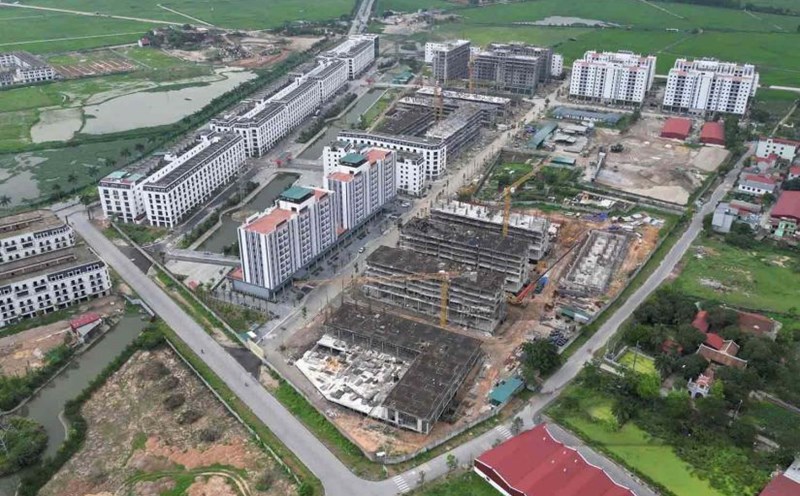According to the Real Estate Market Report for the second quarter of 2025 of the Vietnam Association of Real Estate Brokers (VARS), the social housing segment is having positive changes.
Accumulated from 2021 to present, 117 social housing projects have been completed with a scale of 85,275 units, an increase of 28% compared to the statistics in March. The country currently has 159 projects under construction with a total scale of 135,563 apartments and 419 projects approved for investment, with a scale of up to 419,013 apartments.
The input is gradually being resolved, many businesses are actively participating in bidding to select investors for social housing projects. Output has also changed positively, the application for social housing in some localities has grown dramatically. In the first 5 months of 2025 alone, the whole country completed 22,619 apartments, reaching 22.6% of the target of 100,000 apartments in the year. At the same time, 21 projects were started with a scale of 20,418 units.
However, the disbursement progress of the VND120,000 billion credit package (commercial banks have committed to raising it to VND145,000 billion) is still slow. Although interest rates have been adjusted down 4 times, up to now, only about VND 3,400 billion has been disbursed due to many problems that have not been completely resolved.
The results of the implementation of the Social Housing Development Project are still quite far from the set goals. Although the number of projects that have been started and are under construction is included, the whole country has only reached about 49% of the target by 2025 according to the Project. However, compared to the previous period, progress has improved significantly and showed strong growth signals in the coming time.
In particular, on May 29, the National Assembly officially passed a Resolution on piloting a number of specific mechanisms and policies for the development of social housing, bringing great expectations to this segment. The Resolution is considered to have many "breakthrough" regulations and immediately created a positive signal in the market. The Government has also issued Decree No. 192/2025/ND-CP detailing a number of articles and measures to implement this Resolution.
However, according to VARS, the implementation of social housing still has many problems that need to be further resolved.
Currently, many localities are still slow in allocating land funds for social housing development. Accordingly, it is necessary to require provinces/cities under the central government when issuing annual land use plans to arrange 20% of the land fund corresponding to the total residential land fund for social housing. If this "discipline" is followed, land funds for social housing will always be sustainable and at the rate of urbanization.
In addition, many people are still having difficulty confirming the subject and proving their income. For example, the group of "low-income people in urban areas" are facing many difficulties in carrying out income confirmation procedures and confirming the subjects eligible to buy social housing. Ward-level People's Committees - competent authorities to confirm - often do not have information about people's income, leading to a fear when signing confirmation. In many cases, incorrect content was confirmed, causing people's records to be deleted by the Department of Construction.
According to current regulations, the commune level is not an urban area, leading to the result that people with household registration in the old towns are now subject to commune level and from July 1, 2025, they will no longer be considered eligible to buy social housing.
To resolve this, VARS recommends issuing a Decree or Circular guiding the unification of the confirmation of subjects and proving income for low-income people in urban areas, assigning specific responsibilities to the People's Committees at the ward/commune level, ensuring a transparent and easy-to-implement process.
In addition, instead of requiring "pre-verification" to be too strict, it is possible to apply a post-inspection mechanism to reduce administrative procedure burden, encouraging people to be honest in reporting. In case of detecting fraud, there are strict sanctions: propose a fine of up to 50% of the apartment value or revoke the ownership of social housing if deliberately profiting.











